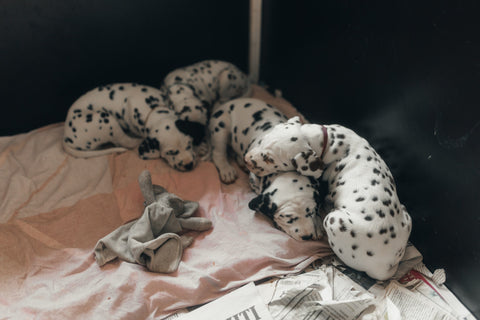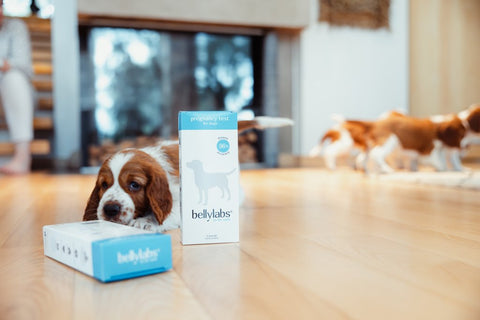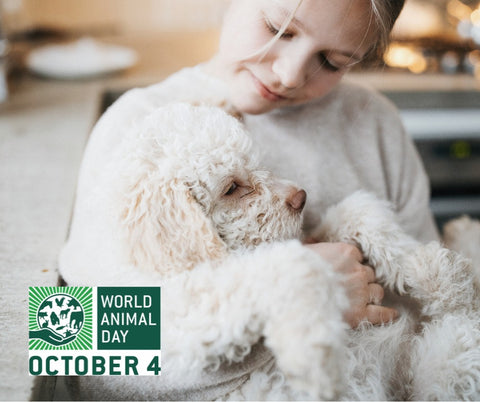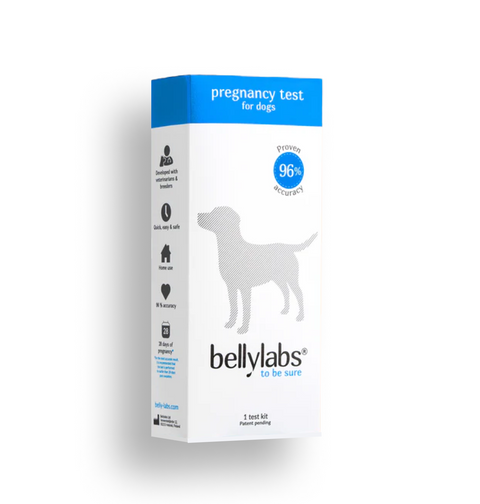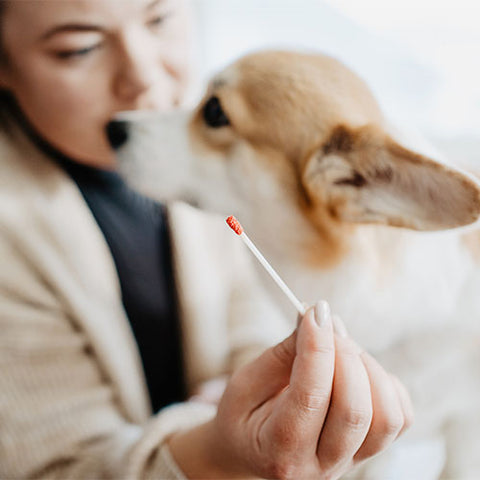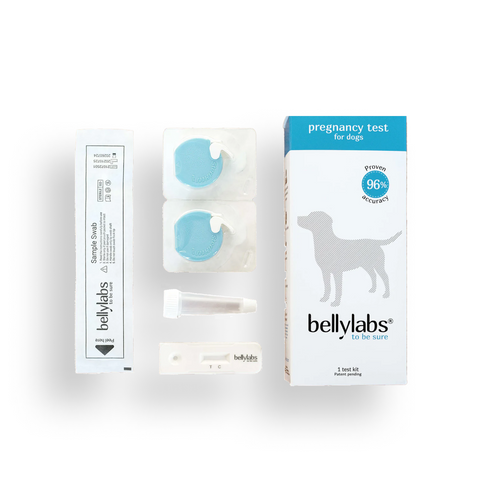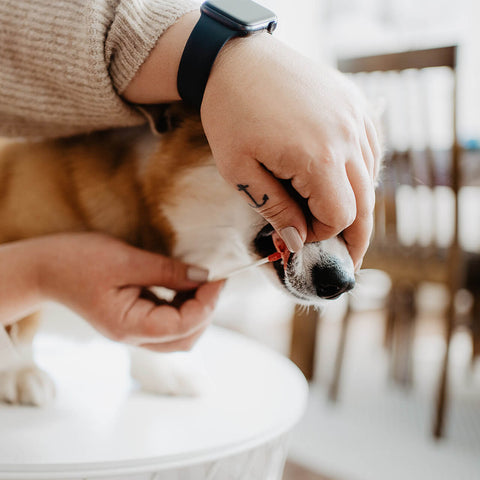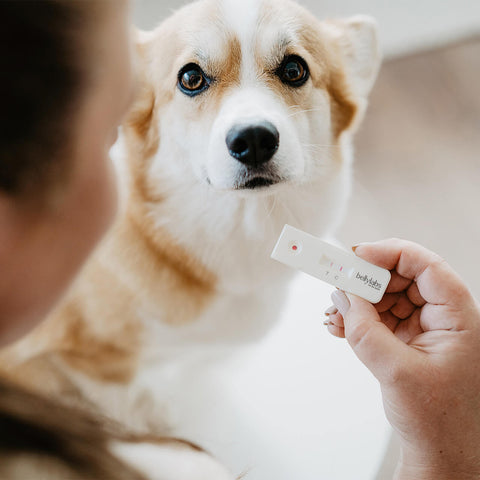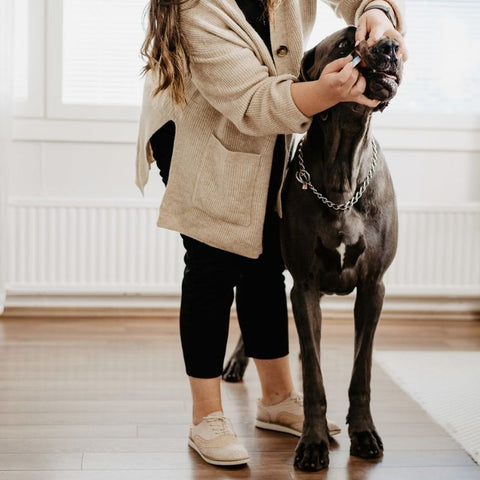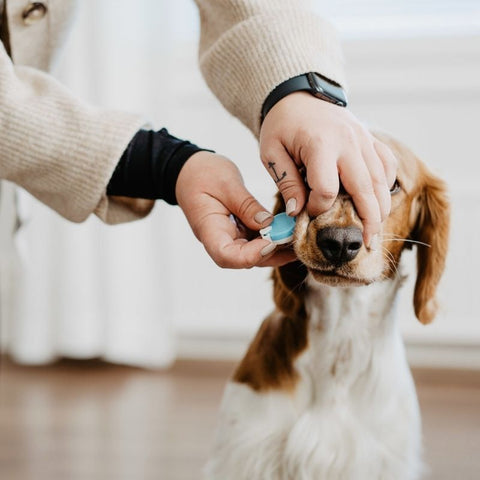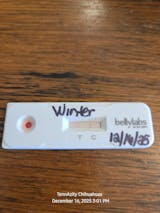Bringing a litter of adorable newborn puppies into the world is an exciting and rewarding experience for any dog owner. However, it also comes with significant responsibilities. Newborn puppies are fragile and require special care to ensure their health and well-being during the first few weeks of life. We will explore every aspect of newborn puppy care, from preparing for their arrival to their growth and development, health, and eventual transition to their forever homes.
Preparing for Newborn Puppies
Before the puppies arrive, it's essential to prepare for their care and create a safe, comfortable environment for both the mother and her litter. Here's what you need:
-
Supplies You'll Need
-
Whelping box or area
-
Bedding material (newspapers, towels, blankets)
-
Heat source (heat lamp or heating pad)
-
Thermometer
-
Puppy-safe disinfectant
-
Scale for weighing puppies
-
Baby bottles and nipples (if needed)
-
Puppy milk replacer (if needed)
-
Creating a Safe and Comfortable Environment
-
Choose a quiet, draft-free location.
-
Set up the whelping box with clean bedding.
-
Ensure proper ventilation without direct drafts.
-
Maintain a comfortable temperature (around 85-90°F or 29-32°C).
The Birth Process
Understanding the birth process and knowing what to expect during labor is crucial for providing appropriate care to the mother and her puppies.
-
Recognizing Signs of Dog Labor
-
Nesting behavior
-
Drop in body temperature
-
Restlessness and pacing
-
Loss of appetite
-
Assisting with the Birth
-
Be present but non-intrusive during labor.
-
Provide emotional support to the mother.
-
Keep track of the time between puppy deliveries.
-
Monitor the puppies' appearance and activity after birth.
-
Caring for the Mother During Labor
-
Offer water and small, nutritious snacks.
-
Ensure the mother is comfortable and relaxed.
-
Be prepared to assist with any complications, but contact a veterinarian if needed and have a more experienced friend giving you a hand
Newborn Puppy Health
The first few days of a puppy's life are critical for their health and survival. Regular health checks are essential.
-
Checking for Signs of Health or Problems
-
Ensure each puppy is breathing and has a strong heartbeat.
-
Observe for signs of distress or weakness.
-
Check for any congenital defects or abnormalities.
-
Common Health Issues in Newborn Puppies
-
Hypothermia (low body temperature)
-
Hypoglycemia (low blood sugar)
-
Aspiration pneumonia
-
Umbilical cord issues
-
Cleft palates
-
When to Call the Vet
-
If you notice any signs of illness or distress.
-
If the mother is unable to care for her puppies.
-
For advice on caring for weak or orphaned puppies.
Feeding Newborn Puppies
Proper nutrition is crucial for the puppies' growth and development during the first few weeks of life.
-
The Importance of Mother's Milk
-
Colostrum provides essential antibodies.
-
Encourage the mother to nurse within the first few hours after birth.
-
Monitor the puppies' weight gain to ensure adequate milk supply.
-
Bottle-Feeding Orphaned Puppies
-
Choose a high-quality puppy milk replacer.
-
Follow the manufacturer's instructions for mixing and feeding.
-
Feed small, frequent meals to mimic the mother's nursing schedule.
-
Puppy Milk Replacers
-
Discuss options with your veterinarian.
-
Store milk replacer properly to prevent spoilage.
-
Gradually transition puppies to solid food as they grow.
Keeping Newborn Puppies Warm
Newborn puppies cannot regulate their body temperature, so maintaining an appropriate warmth is vital.
-
Maintaining a Proper Temperature
-
Keep the whelping area between 85-90°F (29-32°C) initially.
-
Gradually decrease the temperature as the puppies grow.
-
Using Heat Lamps and Heating Pads
-
Use a heat lamp or heating pad to create a warm spot in the whelping box.
-
Ensure that the heat source is safe and not too close to the puppies.
-
Monitor the puppies for signs of overheating or cold.
-
Signs of Hypothermia
-
Weakness or lethargy
-
Shivering
-
Cold to the touch
-
Difficulty nursing
Cleaning and Hygiene
Maintaining a clean and hygienic environment is crucial to prevent infections and keep the puppies healthy.
-
Keeping the Whelping Area Clean
-
Change bedding regularly.
-
Use a puppy-safe disinfectant to clean surfaces.
-
Avoid overcrowding to prevent contamination.
-
Bathing and Grooming Newborn Puppies
-
Avoid unnecessary baths.
-
Clean puppies gently with a damp cloth if needed.
-
Pay attention to the anal and genital areas for cleanliness.
-
Handling Waste
-
Stimulate puppies to urinate and defecate after each feeding.
-
Use a warm, damp cotton ball or cloth to mimic the mother's licking.
-
Dispose of waste properly to maintain cleanliness.
Socialization and Bonding
Early socialization and bonding with humans and littermates are essential for a puppy's development.
-
The Role of Human Interaction
-
Handle and cuddle puppies gently to get them used to human touch.
-
Expose them to various sounds and environments.
-
Talk to them in soothing tones to build trust.
-
Encouraging Sibling Bonding
-
Allow puppies to interact and play with their littermates.
-
Avoid separating them too early.
-
Healthy sibling interactions help develop social skills.
-
Early Training and Socialization
-
Start basic training as soon as the puppies are ready.
-
Introduce them to positive reinforcement techniques.
-
Begin housetraining when appropriate.
Growth and Development
Understanding the key milestones in a puppy's development helps you track their progress and detect any issues early.
-
Milestones in Puppy Development
-
Eyes opening (around 10-14 days)
-
Ears opening (around 14-21 days)
-
First attempts at walking (around 2-3 weeks)
-
Beginning to play and interact (around 3-4 weeks)
-
Tracking Growth and Weight
-
Weigh each puppy daily to monitor growth.
-
Ensure each puppy is gaining weight steadily.
-
Consult a vet if there are concerns about growth or development.
-
Introducing Solid Food
-
Start introducing solid food at around three to four weeks earliest.
-
Choose a high-quality puppy food.
-
Mix the food with warm water to create a soft gruel initially.
Weaning Puppies
The weaning process marks the transition from mother's milk to solid food.
-
The Weaning Process
-
Gradually reduce the frequency of nursing.
-
Offer softened puppy food as a replacement.
-
Monitor each puppy's appetite and adjust accordingly.
-
Choosing the Right Puppy Food
-
Look for puppy-specific formulas with balanced nutrition.
-
Consult your veterinarian for dietary recommendations.
-
Avoid feeding adult dog food to puppies.
-
Monitoring Eating Habits
-
Ensure each puppy is eating well.
-
Encourage healthy eating behaviors.
-
Provide fresh water at all times.
Health and Vaccinations
Regular veterinary care and vaccinations are crucial for a puppy's long-term health.
-
First Vet Visits
-
Schedule the first vet visit within the first few weeks and before puppies head to their homes.
-
Discuss a vaccination schedule with your veterinarian.
-
Address any health concerns or questions.
-
Vaccination Schedule
-
Follow your veterinarian's recommended vaccination schedule.
-
Protect puppies against common diseases like distemper and parvovirus.
-
Consider additional vaccines based on your location and puppy's lifestyle.
-
Preventing Parasites
-
Discuss deworming and flea/tick prevention with your vet.
-
Maintain good hygiene in the whelping area to prevent parasite infestations.
-
Watch for signs of parasites like diarrhea or lethargy.
Preparing for their homes
As the puppies grow, it's essential to plan for their transition to their forever homes.
-
Finding Responsible Homes
-
Screen potential homes carefully.
-
Ensure they understand the responsibilities of puppy ownership.
-
Verify that the environment is safe and suitable for a puppy.
-
Screening Potential Families
-
Ask questions about their experience with dogs.
-
Discuss their lifestyle and daily routines.
-
Share information about the puppy's personality and needs.
-
Transitioning Puppies to Their New Families
-
Provide new owners with essential information and supplies.
-
Gradually introduce puppies to their new homes.
-
Stay available for support and advice after adoption.
Conclusion
Caring for newborn puppies is a rewarding but challenging endeavor that requires dedication, patience, and knowledge. By following this comprehensive guide, you can ensure that the puppies have the best start in life, setting them on a path to become happy, healthy, and well-adjusted dogs. Remember that each puppy is unique, so adapt your care approach as needed, and always consult with a veterinarian for professional guidance. With proper care and love, you can help these tiny bundles of joy thrive and find their forever homes.


